行政會議通過修例引入非本地培訓醫生來港執業,本月底刊登憲報,下月初將法案提交立法會,為解決「醫生荒」這個老大難問題邁出了有意義的一步,受到市民廣泛歡迎。
香港人口老化加速,對醫療的需求急劇上升,導致前線醫生短缺的問題不斷惡化。統計數據顯示,本港平均每千人只有2名醫生,相對英國每千人3名醫生、澳洲每千人3.8名醫生有相當大的距離,政府評估未來十年至二十年醫生缺口近二千人。其實,上述數據不足以反映香港公共醫療的嚴峻現實,公立醫院以不足全港一半醫生數量,承擔了八至九成醫療服務,醫療服務上的「貧富懸殊」十分明顯。基層人士到公院看診的輪候時間愈拖愈長,專科門診輪候數年更是常態,早已成為民怨的源頭之一。
解決方法無非兩個,一是擴大培養本地醫科生,二是引入外援。對於前者,特區政府作出不少努力,港大及中大兩所醫學院的收生規模已由08至09年度的250人,擴大到現在的530人,已達到極限,但仍然追不上現實的需要。另一方面,特區政府十年前開始有限度引入海外醫生,可惜效果不彰,最終成功在港註冊執業的不超過50人,對香港的龐大醫生缺口可謂杯水車薪。
世界各地都通過引入海外醫生以彌補本地資源的不足,新加坡及澳洲的海外醫生佔整體三成以上,值得香港借鑒。對香港而言,引入外援的最大爭議在於是否需要執業考試。醫界堅持為保障質素,海外醫生必須通過本地考試門檻才能執業,但不少人認為考試是「排外」的藉口,只要是在具質素的醫科大學畢業,就可以免試來港執業。公說公有理,婆說婆有理,社會為此陷入分裂。
但現實不等人,香港不能無了期爭議下去,特區政府今次對引入海外醫生設立四項要求,包括必須是本港永久居民、在本港認可的海外醫學院畢業、在公立醫院必須工作五年及通過職業評估,可以說參考了各方意見,能滿足既要引入外援又可保障其質素的要求。
輿論普遍歡迎有關措施,但對效果如何卻見仁見智。有病人組織擔心門檻太高,尤其必須是「香港永久居民」一項,限制了其他有意來港服務的人士。醫界也不太看好有關政策的吸引力,理由是本港公立醫院工作壓力大,若最終有100人來港服務「已經很幸福」。的確,有多少海外醫生符合要求又願意來港服務,目前尚屬未知數,但所謂萬事開頭難,特區政府終於願意踏出第一步,值得肯定,希望還能夠走出第二步、第三步。如果定期評估措施成效,再根據香港實際需求作出調整,解決「看病難」也就有了希望。
隨着香港國安法落實,行政立法關係大為改善,社會重新聚焦改善民生的問題,引入海外醫生救急堪稱特區政府「第一擊」,社會期待重大民生舉措陸續有來。
2021-05-19
Introducing in able people eclectically to address the problem of inadequate medical services
The Executive Council (Exco) has endorsed a proposed legislation allowing non-locally trained medical doctors to practise in Hong Kong. The bill will be gazetted at the end of this month and tabled in the Legislative Council (Legco) early the next. This is a significant step toward solving the long-standing knotty problem of shortage of medical doctors, and is well received by citizens.
The pace of population ageing in Hong Kong is ramping up and demand for medical services soars steeply. As a result, the problem of shortage of frontline doctors keeps worsening. Statistics show that Hong Kong has just two doctors for every 1,000 residents, which is quite low compared to the United Kingdom and Australia where there are three and 3.8 doctors per 1,000 residents respectively. The government estimates Hong Kong will need an addition of at least 2,000 doctors in next 10 to 20 years. As a matter of fact, these figures are insufficient to reflect the tough reality of Hong Kong's public healthcare. With less than half the number of doctors in Hong Kong, public hospitals undertake 80 to 90 per cent of medical services. The "disparity between the rich and the poor" in medical services is very sharp. The waiting time for a grassroots patient to see a doctor at a public hospital becomes longer and longer, with waiting several years to see a specialist now even becoming normality. This problem has long been a source of public grievance.
There are only two solutions to this problem. One is to expand local medical education and the other to resort to outside help. Regarding the former, the SAR Government has devoted quite a lot of efforts. The two medical schools under the University of Hong Kong (HKU) and Chinese University of Hong Kong (CUHK) together now have 520 students enrolled, up from 250 in the 2008-09 academic year, reaching the limits of their capacity but still failing to meet actual demand. On the other hand, the SAR Government began to limitedly introduce in overseas doctors a decade ago. Regretfully, the measure proves not effective as in the end only less than 50 overseas doctors have successfully become registered practitioners in Hong Kong, which is a drop in the bucket compared to the huge shortage of doctors in Hong Kong.
Various places in the world have all introduced in overseas doctors to compensate their shortage of local resources. In Singapore and Australia, overseas doctors account for 30 per cent of the total. Hong Kong could draw on their experience. For Hong Kong, the biggest controversy over soliciting outside help lies in whether overseas doctors concerned need to take the (Hong Kong's) Licensing Examination. The medical circle insists that, in order to ensure the quality [of medical services], overseas-trained doctors must pass the local Licensing Examination before they are allowed to practise. But many others consider the requirement as just an excuse to exclude outsiders, and maintain that a graduate from any qualified medical school should be allowed to practise in Hong Kong without having to sit in the examination. Both parties claim to be in the right, and society is torn by the controversy.
But reality waits for no one. Hong Kong cannot afford to have the controversy going on indefinitely. This time the SAR Government has set four requirements for introducing in overseas-trained doctors, including that such overseas-trained doctors must be permanent residents of Hong Kong, have graduated from overseas medical schools recognised by Hong Kong, have been working in public hospitals for five years and have passed professional assessments. This could be said to have taken opinions from various sectors as reference, hence it could satisfy the demand for outside help while ensuring the quality of such help.
Public opinion in general welcomes such measures, but opinions differ regarding their effectiveness. Some patient organisation worries that the threshold is too high. In particular, the requirement for being a Hong Kong permanent resident keeps out of the door others intending to provide their services in Hong Kong. The medical circle is not so optimistic either about the attractiveness of this policy, on reason that the pressure of working in Hong Kong's public hospital is very high. Therefore it would be "very fortunate "in the end if some 100 overseas-trained doctors might come to Hong Kong. Indeed, it still remains unknown right now how many overseas-trained doctors meet the requirements and are willing to come to practice in Hong Kong. Yet as a saying has it that it is the first step that costs the effort, it is praiseworthy that the SAR Government eventually is willing to take the first step. It is hoped that the second step would be taken and then the third. If these measures are found effective by periodic assessments and then adjusted to meet Hong Hong's actual needs, there is hope for solving the problem of inadequate medical services.
With the implementation of the Hong Kong National Security Law, the executive-legislative relations improve a great deal. The issue of improving people's livelihood becomes a focus in society again. Introducing in overseas-trained doctors to help meet an urgent need could be said as the SAR Government's "first strike". It is anticipated that more major measures concerning people's livelihood will be unveiled one after another.
19 May 2021













































